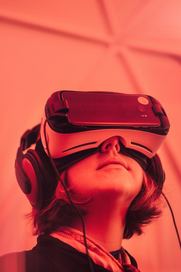 Nobody uses visualization, I don’t need it Did your parents read you stories when you were a kid? Did you see the characters in your head, see the pirates on the roiling seas, hear the roar of the dinosaurs, feel the distress of the damsel, feel the power of the magic, reel at the actions of the villains or celebrate with the heroes? If so, you have visualized, you have thinkualized (see Myth 10). Visualization is the process of creating the image of a desired goal in your mind. Thinkualization creates a full sensory experience in your mind. The image provides a clear motivation for the subconscious and conscious. So, who uses mental imaging, anyway? Here are a few examples. Sport – ever since Dr Dennis Waitley took the visualisation program used by NASA, for the Apollo astronauts in the 1980, into the US Olympic program mental imaging has been used in sport. It is used for skills development and rehearsal. Engineering – it is said that Nikola Tesla, engineer and physicist born in 1856, and the inventor of the AC electricity supply system we use today would visualize an invention in his mind with extreme precision, including all dimensions, with no models, drawings or experiments, before moving to the construction stage. Engineers and architects use mental imaging to imagine what their creations will be like and how they will perform. Music - Musicians use mental practice in learning to master a musical instrument or a piece of music. Legendary classical music pianists Arthur Rubinstein and Vladimir Horowitz practiced in their heads Medicine - Studies have proven that mental imaging enhances surgical technical skills for doctors operating on patients by up to 30%. Health - What you think about your health does influence your health. It will influence the decisions you make about what you eat, whether you exercise and what medical attention you will seek. For more goal setting myths, visit: https://www.chrislchristoff.com/blog For more tips on setting goals, visit: https://www.chrislchristoff.com/resources Photo by Samuel Zeller on Unsplash
0 Comments
Leave a Reply. |